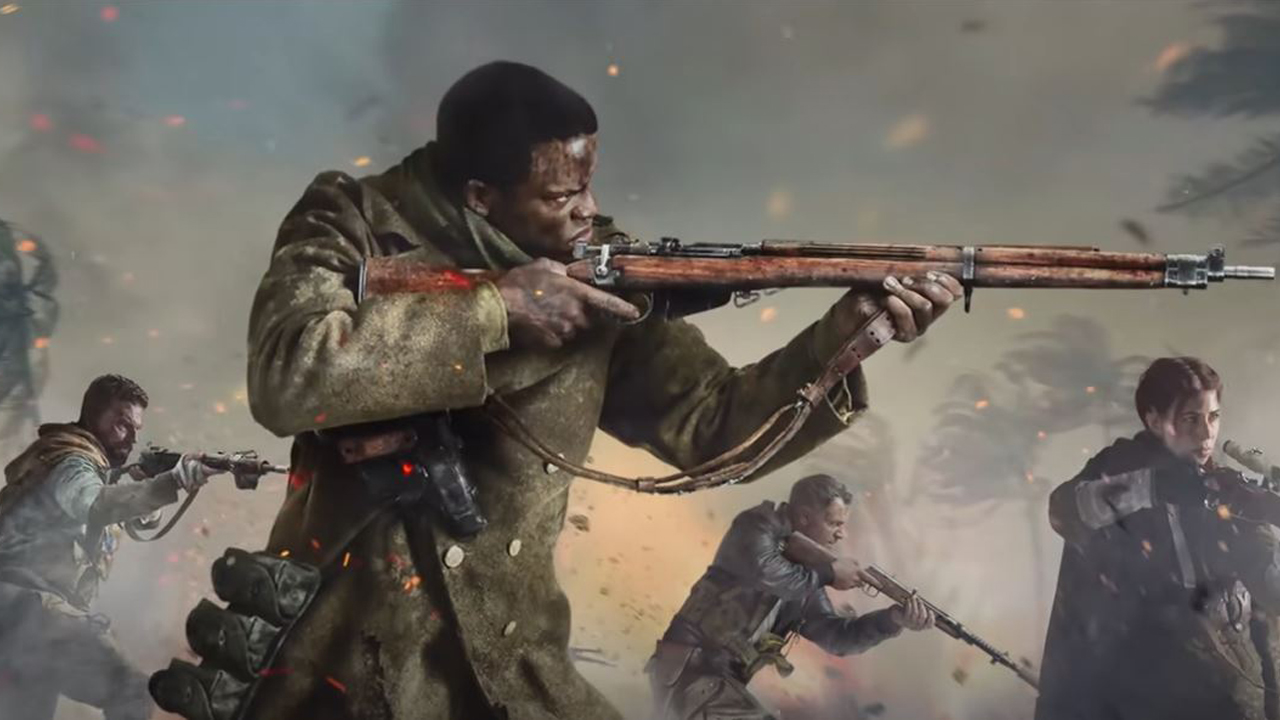Microsoft wants to 'keep Call of Duty on PlayStation,' Phil Spencer says
Spencer has finally shed light on Microsoft's plans for Activision Blizzard platform exclusivity.

Microsoft's acquisition of Activision Blizzard triggered a certain amount of nervous sweat among PlayStation-owning Call of Duty fans. Would Call of Duty releases in some not-too-distant future become Xbox exclusive? The prospect wasn't beyond belief: Both Starfield and The Elder Scrolls 6 were made console exclusives—that is, they'll be released on Xbox and PC—after Microsoft acquired Bethesda Softworks last year.
Until now, Microsoft has only said that it will "honor all existing commitments" to other platform holders after the acquisition is complete, and that "we have no intent to remove any content from platforms where it exists today." In a tweet posted this afternoon, however, Microsoft Gaming CEO Phil Spencer was more explicit—about the Call of Duty series, at least.
Had good calls this week with leaders at Sony. I confirmed our intent to honor all existing agreements upon acquisition of Activision Blizzard and our desire to keep Call of Duty on PlayStation. Sony is an important part of our industry, and we value our relationship.January 20, 2022
"Had good calls this week with leaders at Sony," he tweeted. "I confirmed our intent to honor all existing agreements upon acquisition of Activision Blizzard and our desire to keep Call of Duty on PlayStation. Sony is an important part of our industry, and we value our relationship."
That's good news for the Call of Duty community, and not terribly surprising I don't think. Bethesda RPG's are once-a-decade games, while the Call of Duty series is, for now at least, an annual event, making it a major, regular revenue stream—and that's not taking into account Warzone, the live game battle royale. Cutting that off just to hose a competitor on hardware sales doesn't make any sense, especially since the current console generation is barely a year old. And while Xbox fans might consider it a win, such a move would stir up some powerful negative feelings too.
It's also noteworthy, though, that Spencer only mentioned Call of Duty. Other big Activision Blizzard games, including Overwatch, Diablo, Hearthstone, Warcraft—all of them, really—suddenly seem a lot more likely to end up as Xbox exclusives sooner or later. It's a carefully worded statement, and the specificity of only mentioning Call of Duty speaks volumes.
Spencer's statement reminds me of comments made by Xbox chief financial officer Tim Stuart in 2020 when he was asked whether Microsoft would make future Bethesda games console exclusives. "We highly encourage cross-platform play, simply from this landscape of, if it's good for the gaming ecosystem, it's good for us, classic rising tide lifts all boats," he said in response. Seven months later, in June 2021, Starfield was confirmed as an Xbox exclusive; The Elder Scrolls 6 exclusivity announcement followed in November.
Keep up to date with the most important stories and the best deals, as picked by the PC Gamer team.

Andy has been gaming on PCs from the very beginning, starting as a youngster with text adventures and primitive action games on a cassette-based TRS80. From there he graduated to the glory days of Sierra Online adventures and Microprose sims, ran a local BBS, learned how to build PCs, and developed a longstanding love of RPGs, immersive sims, and shooters. He began writing videogame news in 2007 for The Escapist and somehow managed to avoid getting fired until 2014, when he joined the storied ranks of PC Gamer. He covers all aspects of the industry, from new game announcements and patch notes to legal disputes, Twitch beefs, esports, and Henry Cavill. Lots of Henry Cavill.

